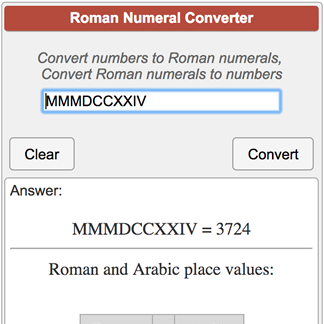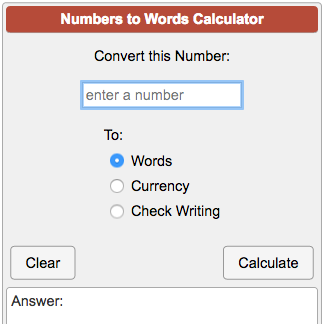Topic translate 102 eggs in spanish: Discover the art of translation with "Translate 102 Eggs in Spanish," where language meets culture, offering a unique glimpse into linguistic nuances and cultural significance.
Table of Content
- How do you say 102 eggs in Spanish?
- Understanding \"102 Eggs\" in Spanish and Its Cultural Context
- Direct Translation vs. Colloquial Interpretations
- Grammatical Structure and Usage in Spanish
- \"Ciento dos huevos\" - Breaking Down the Phrase
- The Humorous Side: TikTok Trends and Wordplay
- Practical Applications: When to Use This Phrase
- YOUTUBE: How to Say 102 Eggs in Spanish
How do you say 102 eggs in Spanish?
To say \"102 eggs\" in Spanish, you can use the phrase \"102 huevos\". Here are the steps to follow:
- Start by saying the number \"102\" which is \"ciento dos\" in Spanish.
- Next, add the noun \"eggs\" which is \"huevos\" in Spanish.
- Combine the two words to get \"102 huevos\", which is the translation of \"102 eggs\" in Spanish.
It\'s important to note that the word \"huevos\" can also mean \"testicles\" in certain contexts, so be cautious when using this phrase in informal conversations.

READ MORE:
Understanding \"102 Eggs\" in Spanish and Its Cultural Context
The phrase \"102 eggs\" translates to \"ciento dos huevos\" in Spanish. While it appears straightforward, this translation has sparked humor and interest, particularly on social media platforms like TikTok.
- The literal translation is direct: \"ciento\" (one hundred) and \"dos\" (two), followed by \"huevos\" (eggs).
- In certain contexts, \"huevos\" can have colloquial meanings, adding a layer of humor to the translation.
- The phrase gained popularity on platforms like TikTok, where users explore linguistic nuances and cultural references in a light-hearted manner.
- Understanding this phrase in Spanish goes beyond mere translation; it\"s about grasping the cultural nuances and the playful side of language learning.

Direct Translation vs. Colloquial Interpretations
The phrase \"102 eggs\" directly translates to \"ciento dos huevos\" in Spanish, but it\"s essential to note the dual nature of this translation, where linguistic precision meets colloquial nuances.
- Direct Translation: \"Ciento dos huevos\" precisely conveys the numerical count of eggs, maintaining the literal meaning.
- Colloquial Interpretations: The phrase \"siento dos huevos,\" sounding similar to \"ciento dos huevos,\" carries a humorous undertone in Spanish, often leading to amusing misunderstandings or jokes.
- Cultural Relevance: Understanding the balance between direct translation and colloquial interpretation is crucial for grasping the essence of language and humor within different cultural contexts.
- Importance in Learning: For language learners, recognizing these nuances is key to mastering real-world communication and appreciating the depth of a language beyond its dictionary definitions.

Grammatical Structure and Usage in Spanish
In Spanish, the grammatical structure surrounding numbers and nouns is crucial for proper communication. The phrase \"102 eggs\" translates directly to \"ciento dos huevos\" in Spanish. Let\"s break down this translation to understand its grammatical components and usage.
- Numerical Expression: The number 102 is expressed as \"ciento dos\" in Spanish. \"Ciento\" stands for one hundred, and \"dos\" is two. Unlike in English, where \"hundred\" remains constant, Spanish uses \"ciento\" for any number in the hundreds before reaching two hundred (200), where it changes to \"doscientos\" for masculine nouns and \"doscientas\" for feminine nouns.
- Noun Agreement: \"Huevos\" means eggs in Spanish. In Spanish, nouns have gender, and \"huevos\" is masculine. Although the number itself doesn\"t change form based on gender, the adjectives and articles associated with the noun will. For example, \"the eggs\" would be \"los huevos,\" using the masculine article \"los.\"
- Plurality: Spanish distinguishes between singular and plural forms of nouns. Since we are discussing more than one egg, \"huevo\" (singular) becomes \"huevos\" (plural). The number preceding the noun does not affect the pluralization of the noun itself.
- Position of Descriptive Elements: In Spanish, the number comes before the noun it describes, similar to English. This order is consistent across simple and complex numerical expressions.
Understanding these grammatical rules is essential for both accurate translation and effective communication in Spanish. Whether for educational purposes, travel, or cultural exploration, grasping the structure and usage of numbers and nouns in Spanish allows for clearer and more meaningful interactions.

\"Ciento dos huevos\" - Breaking Down the Phrase
The phrase \"ciento dos huevos\" translates directly to \"102 eggs\" in English, and it offers a fascinating insight into the structure and nuances of the Spanish language. Let\"s dissect this phrase to understand its components and the grammatical rules that apply.
- Ciento: The term \"ciento\" is used to denote \"hundred\" in Spanish. It is derived from the Latin word \"centum,\" meaning the same. In the context of counting, \"ciento\" is used for any number from 101 (ciento uno) to 199 (ciento noventa y nueve), before changing to \"doscientos\" for 200 and beyond. It\"s a flexible term that adapts based on the number it precedes.
- Dos: \"Dos\" is the Spanish word for \"two.\" When combined with \"ciento,\" it specifically refers to the number two following one hundred, thus creating \"ciento dos\" or \"one hundred and two.\"
- Huevos: \"Huevos\" is the plural form of \"huevo,\" which means \"egg\" in English. The transition from singular to plural in Spanish often involves adding an -s or -es to the end of the word, depending on its ending vowel or consonant. Since \"huevo\" ends in a vowel, an \"s\" is simply added to form \"huevos,\" indicating more than one egg.
This phrase is a straightforward numerical expression combined with a noun, demonstrating the importance of number-noun agreement in Spanish. Not only does it highlight the grammatical correctness but also the cultural significance of conveying precise quantities and objects. Whether you\"re in a grocery store, cooking, or planning an event, knowing how to accurately use numbers and nouns together in Spanish can enhance communication and understanding.

_HOOK_
The Humorous Side: TikTok Trends and Wordplay
In the realm of social media, particularly on platforms like TikTok, language often takes on a playful and humorous character. The phrase \"ciento dos huevos\" has not been immune to this trend, showcasing the lighthearted side of linguistic exploration. Let\"s delve into how this simple numerical phrase has been embraced for humor, wordplay, and viral trends.
- Wordplay and Puns: Spanish speakers have long enjoyed the art of wordplay, and \"ciento dos huevos\" offers ample opportunity. The similarity in sound between \"huevos\" (eggs) and other Spanish words or phrases allows for creative and amusing puns that delight audiences both within and outside the Spanish-speaking world.
- TikTok Challenges: Challenges on TikTok often involve clever uses of language, with \"ciento dos huevos\" becoming the basis for various types of content. From cooking challenges that literally involve 102 eggs to more metaphorical interpretations, TikTokers have found inventive ways to incorporate this phrase into their content, often with a humorous twist.
- Language Learning: Interestingly, the playful use of phrases like \"ciento dos huevos\" has also contributed to language learning. Users often explore the meaning, pronunciation, and context of such phrases, making language learning a more engaging and enjoyable experience. The humor not only makes the content memorable but also encourages viewers to share and discuss it, thereby spreading knowledge of Spanish grammar and vocabulary in an entertaining way.
- Memes and Social Media: The phrase has transcended TikTok to become part of broader social media culture, inspiring memes, jokes, and posts across various platforms. This cross-platform popularity underscores the universal appeal of humor in language and the way digital communities can rally around a simple concept for widespread entertainment.
The intersection of language, humor, and digital culture highlights the dynamic ways in which phrases like \"ciento dos huevos\" evolve and influence. Beyond just a number and a noun, it represents a playful engagement with language that resonates across different audiences, proving that even the simplest of phrases can hatch into a trend that spans the globe.
Practical Applications: When to Use This Phrase
The phrase \"ciento dos huevos\" may seem specific, but it finds its place in various practical scenarios beyond the confines of language learning. Understanding when and how to use this phrase can enhance communication in Spanish, particularly in situations that involve numbers and quantities. Here are some practical applications and contexts where \"ciento dos huevos\" might be appropriately used:
- In the Kitchen: Cooking and baking often require precise measurements and quantities. Whether following a recipe that calls for a large number of eggs or dividing ingredients for a big gathering, knowing how to say \"102 eggs\" in Spanish can be particularly useful in culinary contexts, especially in Spanish-speaking countries or kitchens.
- Shopping and Groceries: When purchasing items in bulk, such as for a restaurant or a large family event, communicating the exact quantity needed is essential. \"Ciento dos huevos\" could be a practical phrase when ordering or buying eggs in bulk from markets, wholesalers, or farms.
- Educational Contexts: Teachers and educators might use this phrase as part of lessons on numbers, counting, or grocery shopping in Spanish. It serves as an example to teach both numbers and nouns in context, making learning more relatable and applied.
- Event Planning: In planning events that involve catering or meal preparation, knowing how to discuss quantities is crucial. \"Ciento dos huevos\" might come up in the context of planning menus, especially for large breakfast or brunch events where eggs are a staple ingredient.
- Cultural and Language Learning: For language learners, engaging with real-life phrases such as \"ciento dos huevos\" can be a fun and practical way to improve vocabulary and understanding of grammatical structures. It can also spark conversations about cultural practices related to food and cooking.
Understanding the practical uses of phrases like \"ciento dos huevos\" showcases the importance of context in language learning and communication. It\"s not just about the words themselves but about connecting with others through shared activities and needs. Whether in a kitchen, a classroom, or a market, knowing how to use this phrase effectively can open up new avenues for interaction and cultural exchange.
The phrase \"ciento dos huevos\" may seem specific, but it finds its place in various practical scenarios beyond the confines of language learning. Understanding when and how to use this phrase can enhance communication in Spanish, particularly in situations that involve numbers and quantities. Here are some practical applications and contexts where \"ciento dos huevos\" might be appropriately used:
Understanding the practical uses of phrases like \"ciento dos huevos\" showcases the importance of context in language learning and communication. It\"s not just about the words themselves but about connecting with others through shared activities and needs. Whether in a kitchen, a classroom, or a market, knowing how to use this phrase effectively can open up new avenues for interaction and cultural exchange.
How to Say 102 Eggs in Spanish
\"Translate: Unlock the power of communication with our incredible video on translation! Learn how to effortlessly break language barriers and expand your global reach. Don\'t miss out on this captivating journey of linguistic discovery!\"
READ MORE:
How Do You Say 102 Eggs in Spanish
\"Eggs: Get ready to crack open a world of deliciousness with our mouthwatering video on eggs! From classic recipes to innovative ones, embark on a flavorful adventure that will leave you hungry for more. Don\'t miss out on these egg-cellent culinary delights!\"







